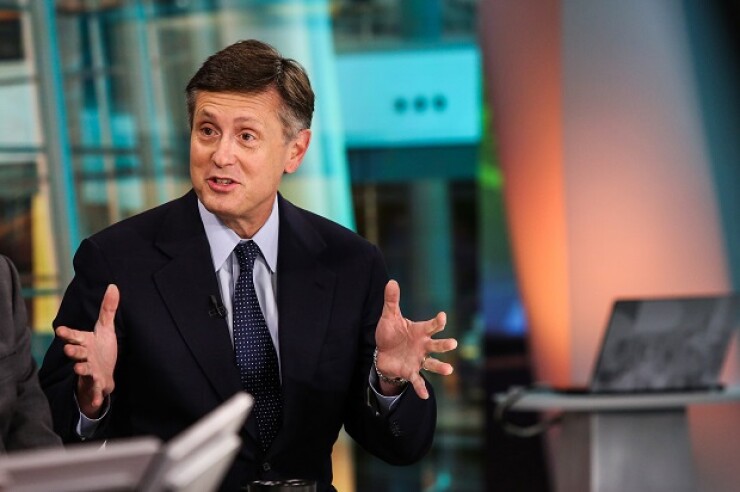Federal Reserve nominees Richard Clarida and Michelle Bowman seemingly passed their first test toward nomination — testifying before the Senate Banking Committee on Tuesday. No date was set for a confirmation vote.
Only Sen. Elizabeth Warren, D-Mass., challenged Clarida, finding it hard to believe that he wasn’t familiar with Gov. Randal Quarles’ plan to reduce bank capital levels.

Clarida, a PIMCO managing director, professor and noted economist said he backed efforts to reduce the Fed’s balance sheet, called Fed independence “essential” and said stock market volatility alone is not a reason to delay a rate hike. Volatility, he said, “is not a pillar of monetary policy in and of itself.” He added that “sometime it works” in conjunction with other factors to determine how the economy is doing.
Acknowledging “monetary policy played a part in the fiscal crisis,” Clarida addressed quantitative easing’s benefits and costs. For the first round, he said, “at the time it made sense to pursue that option.” But, he added, “I believe benefits diminished and costs went up as the rounds [of QE] went on.”
He also stated his preference that the Fed’s balance sheet be largely Treasury securities.
Bowman, the Kansas state bank commissioner, generally agreed with Clarida’s positions, saying it was “absolutely” essential for the Fed to be independent. She said she understood the needs of rural communities and the need for banking rules to conform to the size of the organization, saying a bank with $7 million in assets and three employees can’t be treated the same way as a bank with billions in assets.





